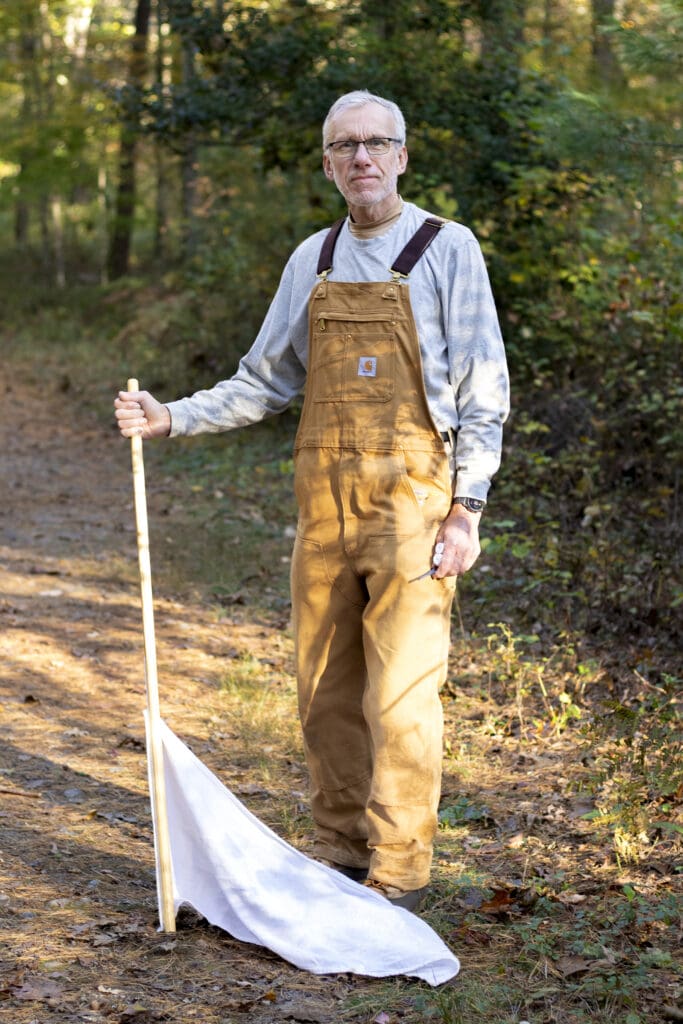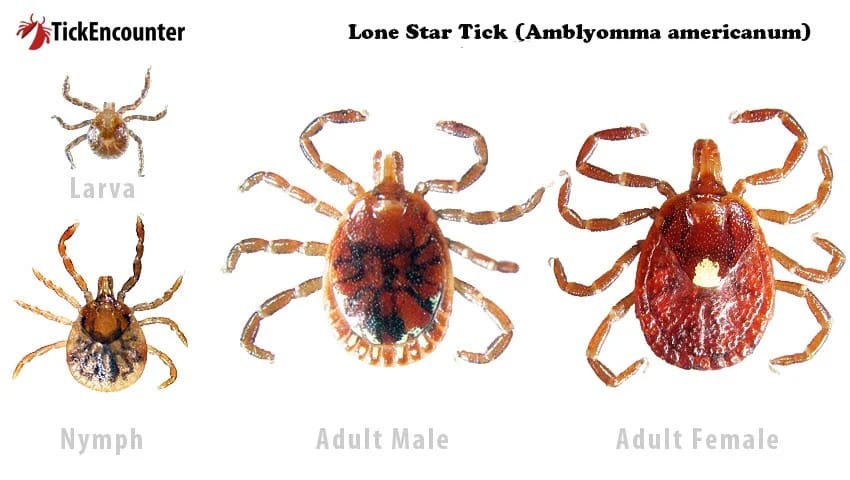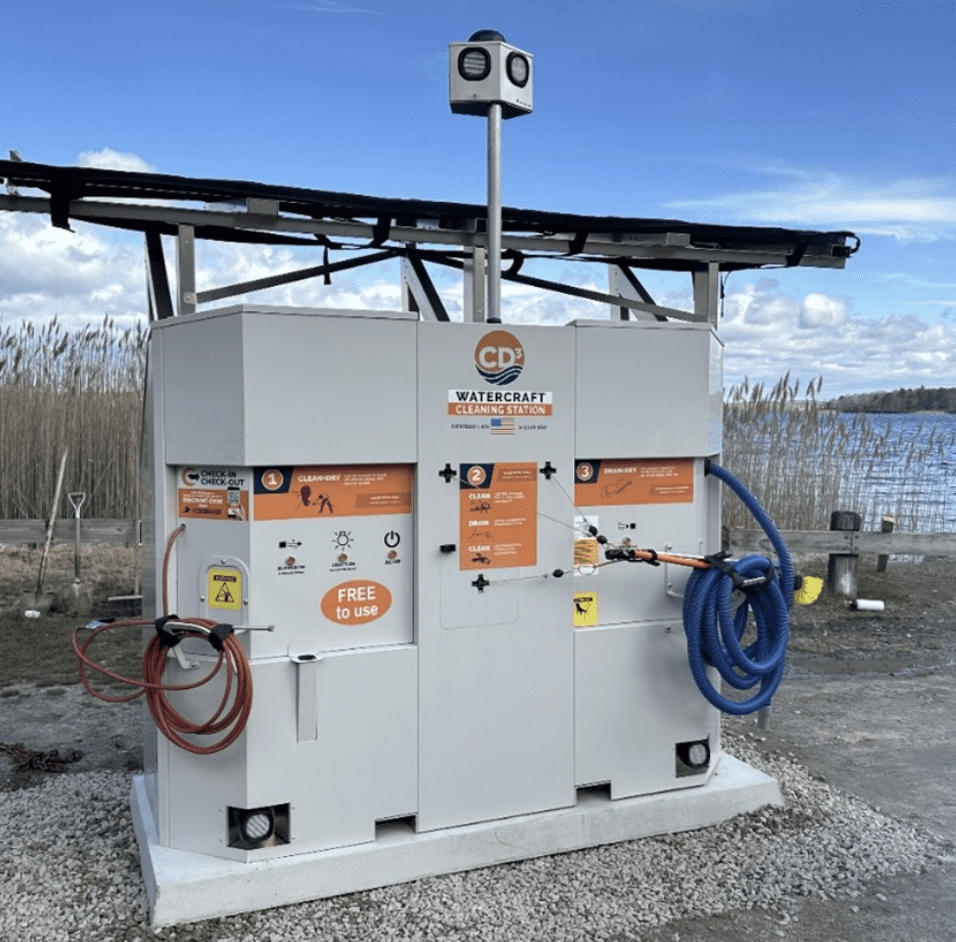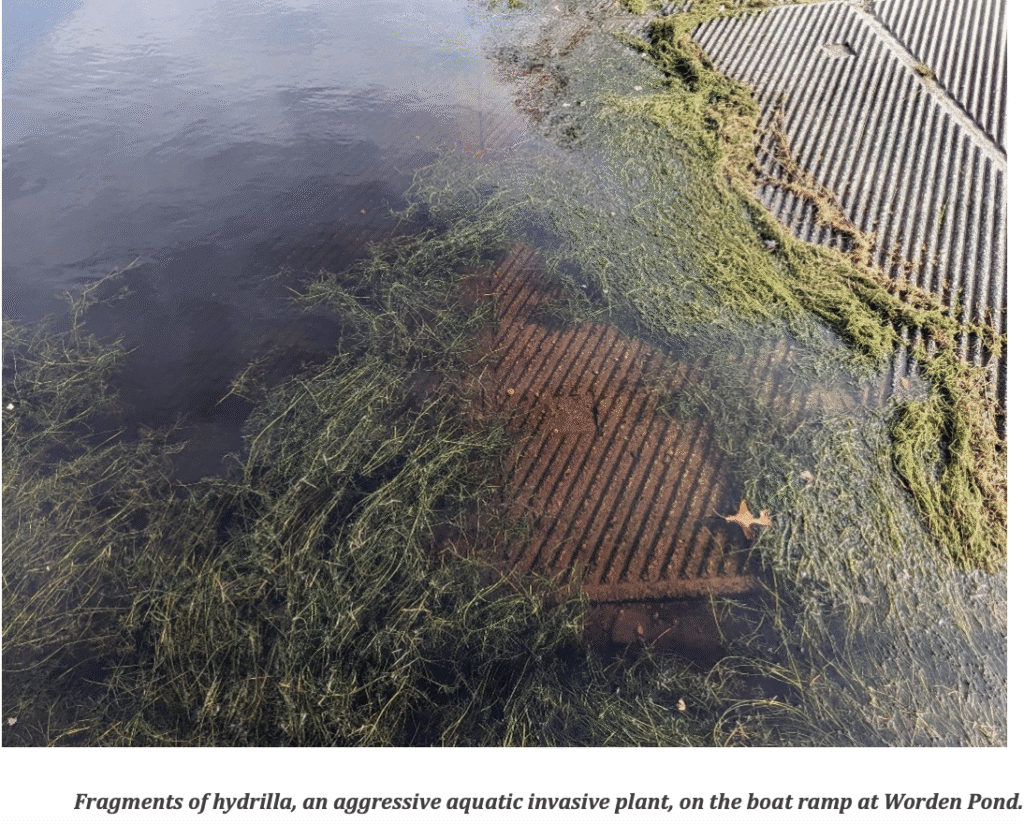Search Posts
Recent Posts
- Rhode Island Weather for May 31, 2025 – Jack Donnelly May 31, 2025
- Burn with Kearns: Fix Your Foundation: Core, Mobility & Joint Health – Kevin Kearns May 31, 2025
- In the News… quick recap of the week’s news (5.31.25) May 31, 2025
- Business Beat: Navigant CU receives prestigious Community Impact Award from NEACH May 31, 2025
- To Do in RI: Taste of Rhode Island. Food, libations, entertainment, auction for Matunuck Oyster Bar May 31, 2025
Categories
Subscribe!
Thanks for subscribing! Please check your email for further instructions.

Outdoors in RI: Tick Guy, PFA well tests, Washing boats of Invasive Plants, Vets surf, Coastal study
URI tick expert shares tips for a tick-free summer
The University of Rhode Island’s resident “tick guy” gets calls for his expertise far and wide, consulting regularly with media outlets across the country, even celebrity sites concerned about the new tick-driven meat allergy.

Thomas Mather is director of URI’s Center for Vector-Borne Disease, and regularly fields national and even international inquiries on the topic. Here in southern New England, his TickEncounter Resource Center (TickEncounter.org) offers a wealth of information and resources so that people can stay ahead of, or away from, tick exposure this summer.
Weather watch
Mather says Rhode Islanders can evaluate tick risks just by looking out the window or assessing their yard conditions this Memorial Day weekend. “Ticks don’t like dry weather,” he says. “So if you have to water your lawn on Memorial Day, that’s actually not good for ticks.”
If our area can stay dry until after the Fourth of July, Mather says, Rhode Islanders will benefit from fewer ticks, as wet weather provides the climate they need to reproduce. In fact, one way to minimize tick bites after a day in the woods is to throw your clothes in the dryer, not the wash. Ticks can survive the wash but drying your clothes for 5 to 10 minutes on high heat replicates the dry July weather that challenges their survival.
Mather even tested this theory in a hot tub one day, giving some ticks a soaking at 102 degrees over three days. They survived. He says a good dry cycle replicates the desiccating that puts them out of action for good.
When Mather’s team started researching ticks in the 1990s, they found ticks mainly in the southern part of the state. He’s since seen them move to more dense urban settings. Areas near Narragansett Bay have the highest numbers of ticks. The team has also seen increasing numbers of lone star ticks. While they don’t spread Lyme disease, the species is very aggressive.
Lone star ticks are most active in spring, while October and November bring an increase in black-legged ticks. Mather says that not all ticks are the same and their bites can spread a variety of diseases.
“It’s important to know they are all different, and to understand the importance of personal protection,” Mather says. His blog (https://web.uri.edu/tickencounter/blog/) shares regular updates on best practices, including his new mantra: “tuck, treat, tight,” an easy way to remember to tuck clothes in, treat clothes and shoes to repel ticks, and don tight clothes or compression wear to prevent them from getting underneath.
Regardless of method, Mather counsels the importance of taking a vigilant approach against all ticks, anywhere. “All ticks need to be protected against,” he says.
For more resources and recommendations, visit URI TickEncounter.


___
State agencies to begin PFAS testing & remediation in three northern Rhode Island neighborhoods
Homeowners with private wells in targeted neighborhoods in Glocester, Burrillville and North Smithfield will have access to free water testing to screen for PFAS and if needed, funding for remediation through a new state-administered grant program that aims to address the toxic chemicals. The Rhode Island Department of Environmental Management has begun notifying those who qualify.
___
Combating Invasive Aquatic Plants – New Boat Cleaning Station at Worden Pond

The Rhode Island Department of Environmental Management (DEM) announces that the Town of South Kingstown has installed a boat cleaning station at the Worden Pond boat ramp. The system is a self-service unit that is free to the public throughout boating season. The unit enables boaters to properly clear off fragments of invasive aquatic plants that easily hitchhike on boats and gear and spread to other waterbodies.
The invasive plant Hydrilla verticillata was detected in Worden Pond in 2023 and is a significant threat to boating, recreation, native plants, and wildlife in the pond while other waterbodies in Rhode Island are at high risk. The plant is easily transported and can grow from just one small plant fragment. A 2024 study estimated that over 150 acres (or 14%) of the 1,094-acre lake was covered by invasive hydrilla in June.
Encouraging boaters to clean their boats at the boat launch can reduce the chance of its spread to other waterbodies in RI. The boat cleaning station was purchased using a $35,000 US Environmental Protection Agency (EPA) Section 319 Non-Point Source grant secured through DEM with an additional $21,610 from the town.

Transporting any plant or plant part in or out of Rhode Island waterbodies on boats, vessels, vehicles, trailers, fishing supplies, or any other equipment is prohibited. Boaters must clean all vessels and gear before and after entering freshwaters to prevent the spread of invasive plants. Boaters should always follow the CLEAN DRAIN DRY approach and take the pledge to help protect the waterbodies where they recreate by taking the following actions:
- CLEAN: Remove all visible aquatic plants, animals, and mud from all equipment before leaving water access.
- DRAIN: motor, bilge, livewell, and other water containing devices before leaving water access.
- DRY: everything for at least 24 hours OR wipe with a towel before reuse.
The Town of South Kingstown is hiring a part-time boat greeter at the ramp during boating season to demonstrate how to use the boat cleaning unit and can help boaters clean off their gear. Volunteers that wish to help greet boaters and educate others at Worden Pond or the local boat ramp can register online for upcoming training sessions in late May and early June.
Aquatic invasive plants are a major threat to Rhode Island’s freshwater lakes, with more than 114 lakes and ponds and 29 river segments affected. Before visiting a waterbody, boaters should check for known invasive plant sightings using DEM’s online maps and list of waterbodies by town available online here, or use the interactive map. Visitors who suspect they have discovered hydrilla in another water body should take a photo and report the sighting at www.dem.ri.gov/hydrilla.
___
Vets can surf!

___
Arup selected to conduct Rhode Island Coastal Resilience Study
Rhode Island Infrastructure Bank and the Rhode Island Department of Environmental Management (RIDEM) announced global built environment design consultancy Arup has been selected to conduct the state’s first comprehensive coastal resilience study. This initiative stems from the 2024 passage of Act on Coasts legislation by the General Assembly, which mandates the development of a statewide plan to assess community vulnerabilities, recommend mitigation strategies along ocean and riverine coasts, and identify financing strategies to implement resiliency strategies. The study will address concerns including sea level rise, increased storm frequency & precipitation, warming air and water temperatures, and changing biodiversity.
“From more frequent floods and overwhelmed stormwater systems, to accelerating coastal erosion, Rhode Island’s communities are already feeling the impacts of climate change,” said Rhode Island Infrastructure Bank Executive Director William Fazioli. “This new comprehensive coastal resilience study to be conducted by Arup will give us detailed insights into vulnerable municipal infrastructure, and options to improve resilience. We look forward to the results of this study, which will complement our successful Municipal Resilience Program that has already provided $24 million to cities and towns across the state to invest in resilient infrastructure solutions. This is another piece of the puzzle as we work together to build a more Resilient Rhody.”
“As we develop a plan to reduce our emissions in accordance with the Act on Climate, we also need to prepare Rhode Island for the impacts that we will experience. Climate change is a global problem, and we will be experiencing rising sea levels, coastal storm surges, and more frequent and intense weather events,” said RIDEM Director Terry Gray. “RI’s shoreline is fundamental to the identity and vitality of our coastal communities. It supports our fishing industry, sustains local livelihoods, and serves as a major engine for tourism and economic growth. This study is more critical than ever as we seek to understand and implement the infrastructure solutions needed to strengthen our coastal resilience. While important investments have already been made, there is still significant work ahead. I look forward to partnering with Arup as we advance effective, forward-thinking strategies to protect our shorelines.”
“The passage of the Acts on Coasts legislation by the Rhode Island General Assembly is a powerful acknowledgment of how vital this work is to the future of the Ocean State,” said Kim Korioth, Rhode Island Chief Resilience Officer. “This investment is not only essential for protecting communities statewide, but also positions Rhode Island as a national leader in climate resilience. We are deeply grateful to our legislators for prioritizing this critical effort.”
“We recognize the importance of this work and the role it will play in identifying how we can best protect Rhode Island’s communities,” said Ilana Judah, Arup, Americas Climate and Sustainability Services Leader. “And we’re grateful for the opportunity to apply our local and global expertise in climate resilience to assist all the stakeholders who have come together in support of this fundamental mission.”
The Arup coastal resilience study will include a series of community workshops with the first taking place on June 18th. Upcoming announcements on plan development & engagement will be shared via ClimateChange.RI.gov.
About Arup
Arup is a global built environment consultancy providing advisory and technical expertise across more than 150 disciplines. With over 18,000 members – from engineers to urban planners – we create safe, resilient and regenerative spaces where people can thrive. We bring a creative and collaborative approach to our work of shaping a better world.
___
